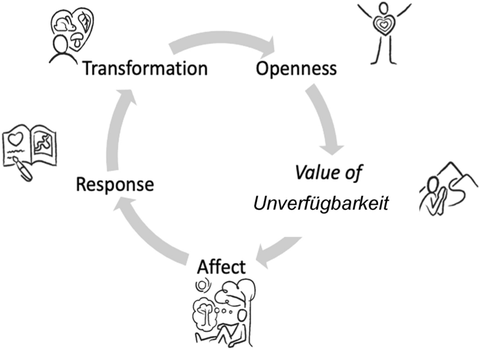Sep 05, 2025
The mind-action gap in ecological crises

The min-action gap in ecological crises
While the majority of people in Germany say they are “concerned” or ‘worried’ about ecological crises, this does not necessarily result in more sustainable behavior. S Susanne Müller, Dr. Caroline Surrey, Prof. Dr. Philipp Kanske, Dr. Michael Höfler, Julia Roscher, and Prof. Dr. Martina Artmann address this so-called “mind-action gap” in their publication. The publication is part of Susanne Müller's cumulative dissertation and the result of an interdisciplinary collaboration between the Leibniz Institute for Ecological Spatial Development and the Chair of Clinical Psychology and Behavioral Neuroscience at TU Dresden.
In the course of the five-week study, the authors attempted to promote resonance-specific relationship qualities such as openness to nature, recognition of its value of unavailability, or responsiveness to its needs among Dresden residents with urban nature. Psychotherapeutic methods such as mindfulness or self-compassion exercises, value work from ACT therapy, and storytelling were used. As this is a feasibility study, the authors cannot present any statistical relevance, but compared to a control group, positive results were seen in terms of reduced ecological footprints and improvements in the participants' health and sense of connectedness. Further studies in this interdisciplinary field of research are recommended in view of advancing climate change.
Further information can be found in the full publication in Discover Sustainability.
Müller, S., Surrey, C., Kanske, P. et al. Exploring the fostering of individuals' resonances with nature through a 5-week-long ritual: findings, limits and outlook of a feasibility study for sustainability transformations. Discov Sustain6, 894 (2025). https://doi.org/10.1007/s43621-025-01399-z
